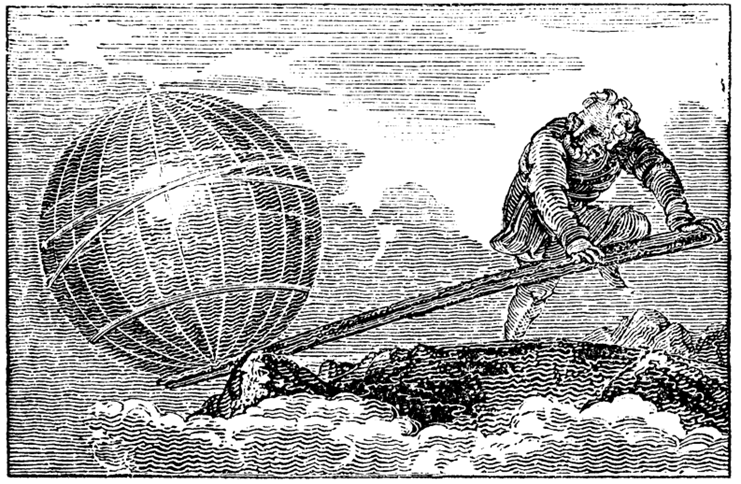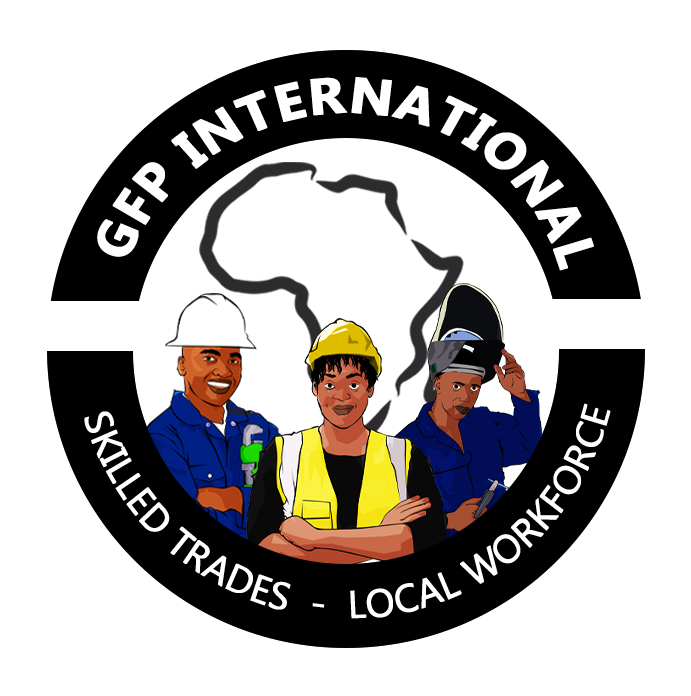Invest in African Welding Schools to Boost Local and Global Economies
FROM MIKE VALLEZ™
Throughout human history, societies with the secrets of metalworking have thrived. From the copper age to the bronze age, and now the iron age, the connection between metalworking and human prosperity is unmistakable. After three years of analysis, and twenty years of engagement with African education, my colleagues and I have identified the African skills gap in the realm of metalworking and industrial welding and have developed a program to address this urgent need. Outside of South Africa, there are no trade schools teaching industrial welding to its student populations. This deficit represents a direct threat and risk to energy investments, critical mineral development, manufacturing, farming production, and other industries. It is holding back African industrial development. Seventy percent of African trade is the export of raw commodities. These commodities are shipped abroad where the value is added through manufacturing or processing, and then finished goods are sold back to Africans for a price that includes the cost of value added abroad. This situation has multiple impacts that will be the subject of another newsletter.
Today, economic analysts regularly cite the Chinese economy as an engine of global growth in general. When China slows down, so goes other parts of the global economy. But today, China and the rest of the global north are facing demographic decline, while the working age populations of Africa are booming. In contrast, the number of Africans entering the work force annually will continue to grow for at least the next 20-30 years or more. By 2050, 40% of the world’s workforce will be Africans. Gen Z in Africa is the first generation that is equipped with connections to the global internet and other communication networks. While Chinas economic transformation occurred over a forty-year period, I expect this new Gen Z dynamic in Africa will drive Africa’s transformation at an unprecedented speed.
According to research by Ian Thom, Upstream Research Director at Wood Mackenzie, the African upstream oil and gas sector is in the middle of an US$800 billion capital expenditure (capex) programme that will see liquified natural gas (LNG) emerge as a major investment theme alongside traditional deepwater oil.
In addition to the energy boom, the race is on for African critical minerals. Africa contains large mineral and mining resources including:
- 30% of the total world resource reserves.
- 90% of the world’s chromium and platinum reserves.
- 65% of the world’s uranium reserves.
- 65% of the world’s arable land.
- 60% of the world’s cobalt reserves.
- 40% of the world’s gold reserves.
- 33% of the world’s diamond reserves.
Modern mining requires strong welding, machining, and fabrication skills to maintain a modern mining equipment fleet.

Africa does not just need more welding training; it needs different welding training. With a history dating back to 2005, GFP International expanded its mission in early 2022 to support the efforts to raise the construction and industrial workforce skills in Africa to world class standards. This expansion of our mission has been timely. In 2023, the World Bank held the Heads of State Summit on Human Capital Investment. The OECD recently issued their report citing the need for skills training in Africa. The Association of Technical Universities and Polytechnics has proclaimed skills training as its top priority. Every African trade school we have visited, every education minister we met, and every industry leader agrees with this assessment. Industrial welding is the key.
To make this point, let me cite the law of Archimedes. Born in 287 BC, Archimedes was the most famous mathematician and inventor in ancient Greece who developed the law of the lever, as depicted in this image which first appeared in Mechanics Magazine in London, 1824. In 340 AD, Pappus of Alexandria made a famous quote based on Archimedes law of the lever: "Give me a place to stand on, and I will move the earth."
$100 Million USD Program to Upgrade 20-30 Existing Welding Schools of Excellence Across Africa
According to the Handbook, Global LNG Fundamentals, the US Department of Energy recommends that LNG project developers in Africa implement a robust capacity-building effort.[1],[2]
The complexity of building capacity in the welding trade is not a typical exercise conducted by a large energy developer or its contractors. The project owner often thinks of skilling up as a responsibility of the contractor. However, when the contractor is ultimately assigned to the site, it is too late. As a result, the typical project encounters a shortage of skilled labor, and a crisis ensues. At the time of this writing, the energy and mining investment cycles in Africa are just starting, and competition for skilled welders between projects is already occurring. A large group of welders on a pipeline project in East Africa were lured with higher pay to a large project in West Africa. With $800 billion in planned energy projects, and mining companies spending record amounts on exploration in Africa, the problem will surely worsen, with severe impacts on the cost and schedules of these major projects. It is time to act to address this major risk to investors.
Regarding LNG projects in Africa, the US Department of Energy states: Specific skills need to be identified as early as possible in the planning of a project to allow training to be organized and provided to meet project schedules. The capacity building effort should galvanize support from other stakeholders such as government, academia, and subject matter experts. It is important that the qualification of the intended service providers and the quality of the goods supplied are consistent with the requirements of the project with appropriate evaluation and monitoring protocols in place.
GFP International has spent the last two years building a team and preparing to address the African welder shortage. With our team members, we are now ready to launch a significant program Our initial goal, made before a complete analysis, was to support the training of 5,000 industrial welders by 2027 through a combination of direct financial support, advocacy, and technology transfer. Since then, we learned that the US has 1,200 industrial welders per million population. Applying this metric to a group of African countries, including the DRC, Tanzania, Kenya, Uganda, Mozambique, Somalia, Burundi, Rwanda, and South Sudan, these countries with a combined population of 367 million would need 440,400 industrial welders to match the 1,200 industrial welders per million population. The number for all of Africa is much higher.
After this analysis, we realized that our initial goal of 5,000 welders was not enough to sufficiently address the need and mitigate the project risks. As a result, we decided to develop an approach and build a team that could develop at least twenty welding schools of excellence as an initial phase. We believe that this would provide access to a great number of welding students and teachers to become certified and employable in any industrial application. This program envisions working with existing TVET schools that already have administrative structures and facilities that could be modernized and expanded to meet the needs.
Design and Cost Models for Welding Schools of Excellence
After inspecting seventeen existing Arican welding schools, we discovered the large gap between typical schools that teaches ornamental welding and a fully equipped school that can teach industrial welding and fabrication skills. A typical student/teacher ratio in a welding school is 20:1. To achieve efficiency then, a minimum optimum welding school will have twenty welding booths. Design and cost models for a 20 and 60 booth school can be found on the GFP International website at: https://www.gfp-intl.org/welding-school-design-guide/
[1] https://www.energy.gov/ia/articles/understanding-natural-gas-and-lng-options-handbook
[2] chromeextension://efaidnbmnnnibpcajpcglclefindmkaj/https://www.energy.gov/ia/articles/global-lng-fundamentals
To create a successful launch of industrial welding across Africa, GFP International has looked to African Skills and Development Group Ltd.[1] to assemble a pan-African team of welding training consultants, architects, engineers and project managers to oversee the design, procurement, project construction, and startup of the modernizations, expansions, and new construction needed. The next step is to assemble a Blue-Ribbon Committee.
We are currently forming a Blue-Ribbon Committee of known leaders in industry, government, academia and international agencies. The initial role of this committee will be to:
- Confirm our findings for the need and positive impact of modernizing / creating 20-30 welding schools of excellence.
- Help identify which schools and locations would be most impactful for the first 20-30 welding schools.
- Provide high level oversight for the $100 million USD program to assure transparency and good governance.
- Help build a coalition to support government policy changes, appeal to banks, industry, foundations and aid agencies to fund the program.
If you or someone in your sphere of influence are interested in participating in this Blue-Ribbon committee, please contact:
Eng Michael Vallez, P.E., MBA / mjvallez@gfp-intl.org
_________________________________________________
Mike Vallez is the Founder and Executive Director of GFP International, and the Founder and Managing Director of African Skills and Development Group Ltd.
GFP International, (a U.S. 501(c)(3) non-profit organization)
Salt Lake City, Utah
African Skills and Development Group Ltd:
Delaware USA, Nairobi Kenya, Dar es Salaam Tanzania, Kigali Rwanda, Lagos Nigeria
https://www.africanskillsanddevelopment.com/
[1] African Skills and Development Group Ltd. is a related entity established by the Founder of GFP International to provide pathways for graduates of African trade schools to good paying jobs in industry and provide project management services for welding school modernizations in Africa.
